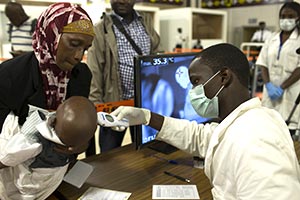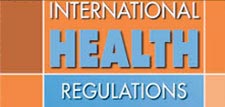 The International Health Regulations (IHR 2005) are a set of regulations legally binding on 196 States Parties, including all WHO Member States. They contribute to global public health security by providing a new framework for the coordination of the management of events that may constitute a public health emergency of international concern, and improve the capacity of all countries to detect, assess, notify and respond to public health threats.
The International Health Regulations (IHR 2005) are a set of regulations legally binding on 196 States Parties, including all WHO Member States. They contribute to global public health security by providing a new framework for the coordination of the management of events that may constitute a public health emergency of international concern, and improve the capacity of all countries to detect, assess, notify and respond to public health threats.
The IHR were adopted at the Fifty-eighth World Health Assembly on 23 May 2005 and entered into force on 15 June 2007. They require States Parties to notify a potentially wide range of events to the WHO. Implementing the IHR is an obligation for WHO and States Parties to the Regulations.
The purpose and scope of the Regulations are “to prevent, protect against, control and provide a public health response to the international spread of disease in ways that are commensurate with and restricted to public health risks, and which avoid unnecessary interference with international traffic and trade”. Because the IHR (2005) are not limited to specific diseases but apply to new and ever- changing public health risks, they are intended to have long-lasting relevance in the international response to the emergence and spread of disease. The IHR also provide the legal basis for important health documents applicable to international travel and transport and sanitary protections for the users of international airports, ports, and ground crossings.
Related link
Read more about pandemic and epidemic-prone diseases





